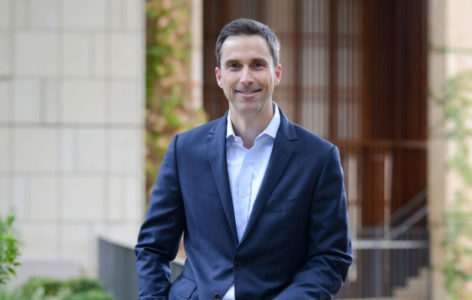Stanford’s Rhode Center on the Legal Profession Publishes First Comprehensive Report on Emerging Legal Innovations
Stanford Law School’s Deborah L. Rhode Center on the Legal Profession published today the first comprehensive study of the legal innovations emerging in Utah and Arizona after those states implemented significant reforms to the regulation of legal practice. The report presents the first empirical analysis of new legal service providers enabled by these reforms and offers a descriptive taxonomy for identifying and understanding these innovative models. Initially presented to the Regulatory and Practice Reform Committee of the Michigan Justice for All Commission, the report provides much needed insight into how changing the rules governing legal practice in America might impact consumers, lawyers, and access to justice.
The legal reforms in Utah and Arizona studied in this report were driven by each state’s supreme court, seeking new solutions to an ongoing problem: the crisis in access to civil justice facing most Americans. Studies repeatedly show that most Americans don’t get the legal help they need. Indeed, in a stunning three-quarters of the 20 million civil cases filed in American courts each year, at least one side lacks a lawyer. While there are many causes contributing to this wide justice gap, there is a growing academic consensus that the strict regulations limiting who may provide legal services and how those services may be funded are a major driver.
The courts in Utah and Arizona each implemented reforms targeting those limitations: permitting nonlawyer ownership of legal practices (Utah and Arizona) and limited nonlawyer legal practice (Utah) through new legal service entities. The theory driving these changes is that more sources of capital and business expertise, as well as more diversity of legal providers, will reduce the barriers to access to justice.
The report’s findings show that most of the new legal service entities in Utah and Arizona are serving individual consumers or small businesses in areas such as end-of-life planning, contracting, and family legal needs. The reforms are spurring innovation, both in business structure and capital arrangements and, particularly in Utah, service provision. The report also finds that lawyers are playing a central role in most of the new legal service entities and the innovation within them, whether as owners, employees, compliance officers, or advisors.

“The reforms in Utah and Arizona are fundamentally changing how we think about the delivery of legal services in the United States, noted Professor David Freeman Engstrom, one of the report’s authors. “Proponents and opponents of reform have offered lots of speculation about what might result from rule changes. This report presents the first data-driven review of market impacts. We hope the report and our ongoing research in the area can help inform ongoing policy decisions around reforming the rules governing the practice of law in this country.”
Stanford Policy Lab
The report was the end result of a policy lab run by the Rhode Center on the Legal Profession at Stanford Law School, which Professor Engstrom co-directs. A diverse mix of students from across Stanford, from Stanford Law School to the Engineering quad, conducted interviews with 37 new market entrants and reviewed and coded all of the publicly available application and authorization materials for entities in Utah and Arizona.

Graham Ambrose, a current second-year law student, member of the policy lab, and a current Civil Justice Fellow with the Rhode Center, participated in drafting the report. “Law students are seldom given the chance to help build a legal system that is more fair, more responsive, and more humane than the one we have inherited,” he said. “This research offers a rare chance for policymakers and scholars to interrogate the ways that the legal profession has failed to adapt to the modern economy and, ultimately, to imagine a system that works better for all Americans.”
In the coming months, the Rhode Center will be developing an online clearinghouse of data on new market entrants in Utah and Arizona to keep the information developed in this report up to date and of continuing use.
READ THE REPORT AND LEARN MORE ABOUT LEGAL REFORM
About the Deborah L. Rhode Center on the Legal Profession
The Rhode Center’s work focuses on reforming legal-services regulation to increase innovation and access to justice; understanding and shaping the role of technology in law and lawyering; protecting consumers and clients in civil litigation; and building a stronger, more diverse profession. The Center seeks to connect theory with practice and translate scholarly research to real-world impact. It is guided by an Advisory Forum made up of prominent leaders at law firms and corporate legal departments who provide insight into the challenges facing the profession.
In its first decade, the Rhode Center published the first coursebook on leadership for lawyers and helped to introduce a cutting-edge course on leadership for law students at schools around the country, launched the Legal Design Lab to rethink the delivery of legal services, and helped accelerate efforts to diversify the profession. In the last few years, the Rhode Center has focused on work with judges, state bars, and other policymakers to translate the findings of Rhode’s research into new approaches to legal-services regulation that increase innovation and access to justice.
About Stanford Law School
Stanford Law School is one of the nation’s leading institutions for legal scholarship and education. Its alumni are among the most influential decision makers in law, politics, business, and high technology. Faculty members argue before the Supreme Court, testify before Congress, produce outstanding legal scholarship and empirical analysis, and contribute regularly to the nation’s press as legal and policy experts. Stanford Law School has established a model for legal education that provides rigorous interdisciplinary training, hands-on experience, global perspective and focus on public service, spearheading a movement for change.
